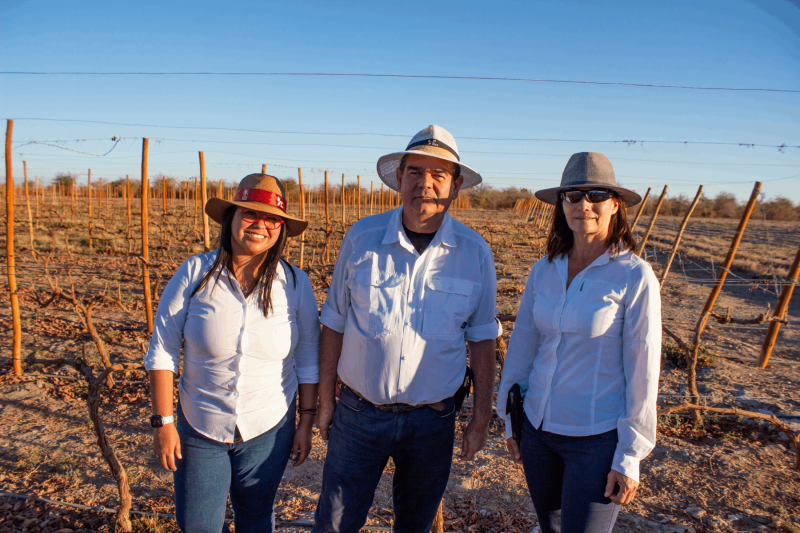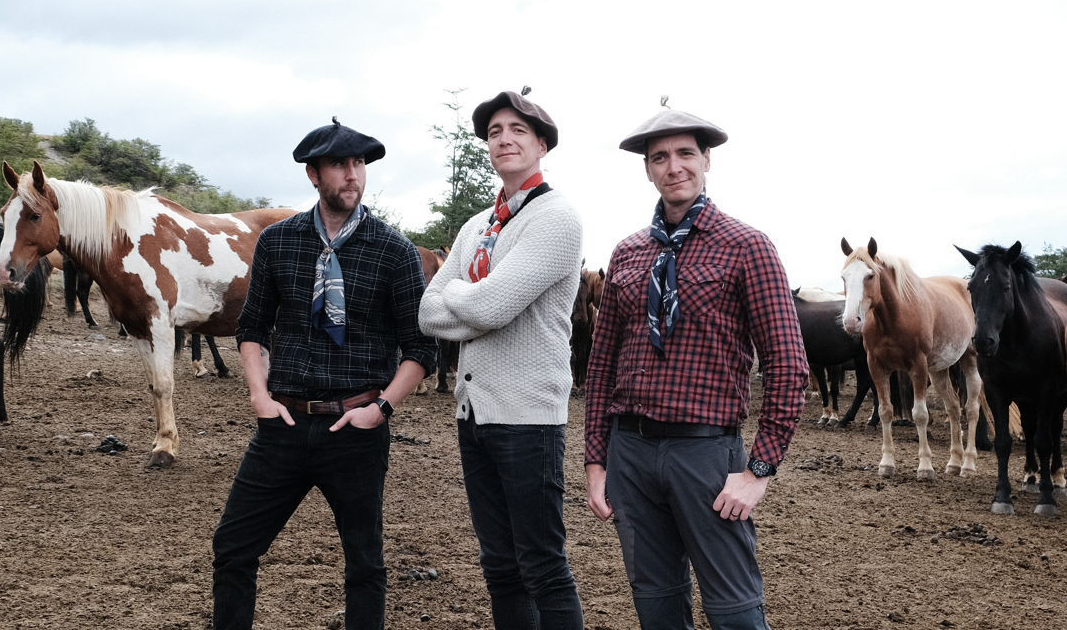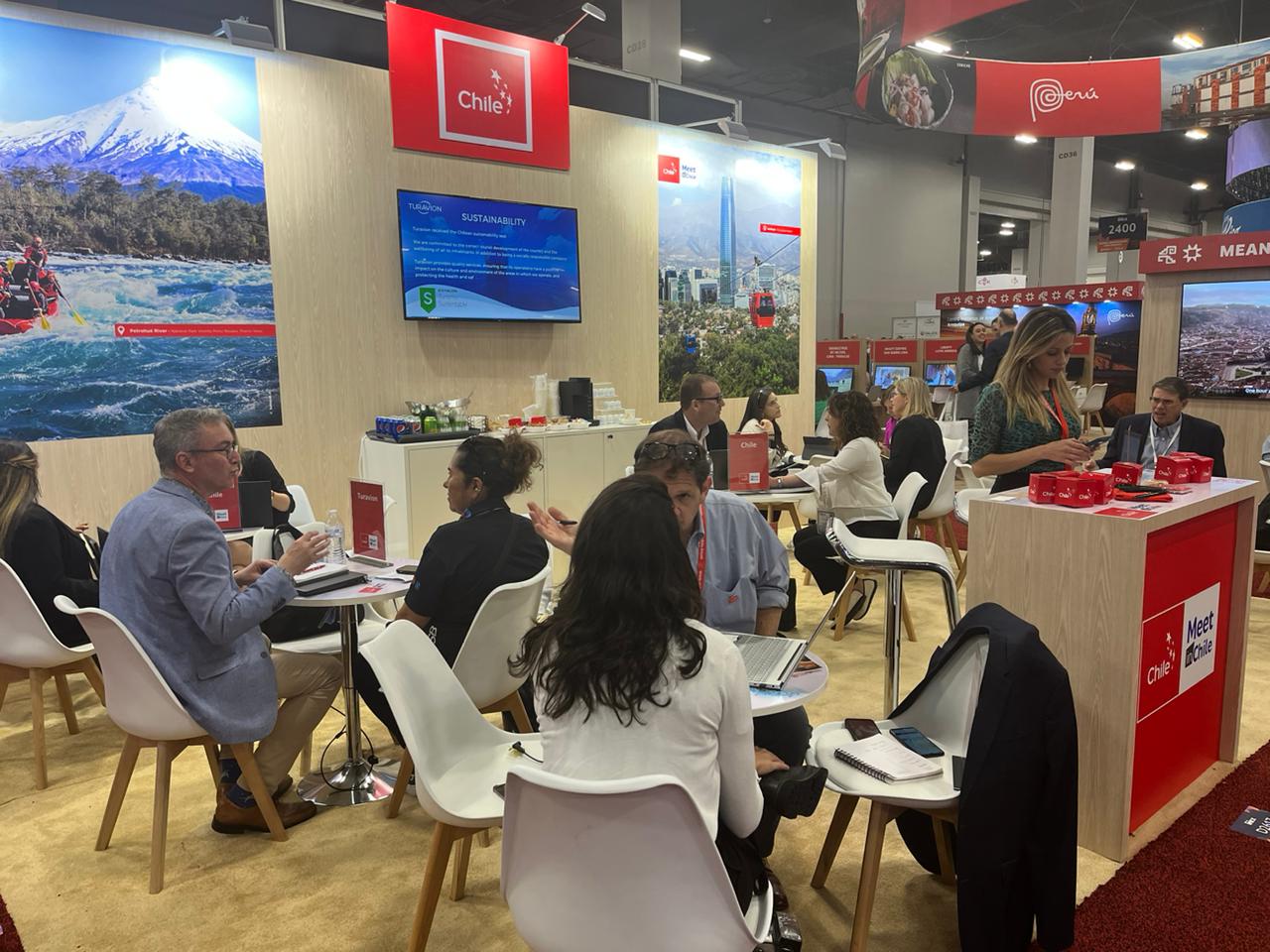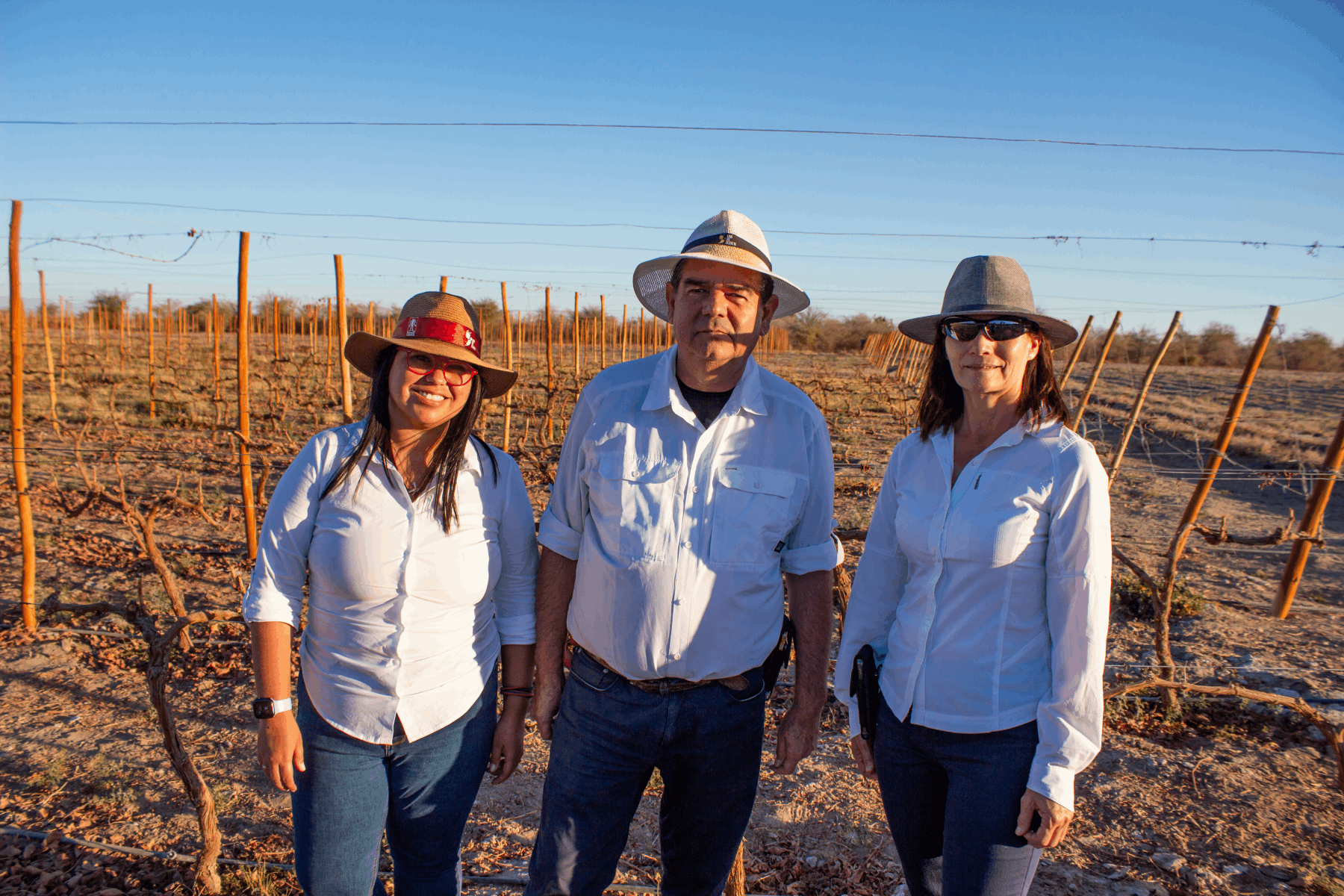
In 2003, the Universidad Arturo Prat (UNAP) initiated a project to rescue the winemaking activity in the Tarapacá Region, which had been abandoned between 1937 and 1949.
After recovering the plants that survived in the middle of the most arid desert in the world, researchers set up the Conchones Experimental Station in Pozo Almonte.
Nowadays, Vinos del Desierto has evolved and acquired different lines of work. Among them is artisanal harvest, enotourism, and training farmers from the area.
Marcelo Lanino Alar, director of the project, and academic at the Faculty of Renewable Natural Resources from UNAP, explained to us at Trade News the characteristics of the initiative and its relationship with the communities.
– How does this type of projects help the communities in the area?
– As academics, what we were interested in was producing wine, and we saw that it drew attention. Therefore, what we did was a whole process of applied research because we started trying, getting to know, and making mistakes in many things until we could determine how to make a good wine. At this moment, what we are doing is giving the plants to farmers who are interested, who have the abilities to do it, and, mainly, want to do it, so they can develop their own boutique-like vineyard.
The idea is not only that they can produce wine, but that they can also make the most of the enotourism experience in a way that they can receive tourists, show the experience, and sell the wine themselves.
In that way, we pretend to work with the farmers, giving them all the experience developed by the university. We make a lot of mistakes, and the idea is precisely to transfer to them the knowledge learnt from those mistakes and how we face them.
We are also working with other entrepreneurs, for example tourism guides. (…) Cuisine has also been interested in this because many of the restaurants in Iquique and in La Pampa which want to offer regional products on their menus and they are missing wine, so, those kinds of synergies are being created.
We also realized we could be working inside the circular economy. To the residues we have, we start to find them a function. (…) There is a part we can use in cosmetics; the raisins, lees, residues of the hat when it is finished, etc.
– Beyond the economic and academic parts, how have this type of projects impacted the community and how do they feel?
We have noticed an important vision, particularly from older people, who remember that wine was once produced. They are content because someone, in this case the Universidad de Arturo Prat, was able to start to produce wine again.
We not only make wine, like the first we made, but we make great quality wine, so, we are creating a little happiness in the people who visit us.
One of the most important things is that one way or another, the Vino del Desierto brand is very attractive. People call us and ask “hey, is this Vino del Desierto true?”, and when people from Enotourism Chile have visited us, it has caught their attention.
Although it is in done the same outline that the rest of vineyards use in enotourism, the concept we are in, where we operate, temperatures we have, radiation, time of the year, are absolutely different to what occurs in the southern area, so, we expect to be able to make a contribution to Enotourism Chile.
The Vino del Desierto experience
Chile is internationally known for being a winemaking country. On the World’s Best Vineyards ranking, there were seven Chilean vineyards among the best 50 in the world.
In that setting, Marcelo Lanino points to the importance of enotourism to differentiate Vino del Desierto from the vineyards in the center and south of Chile.
– What is the importance of having public support in this type of projects?
– It helps a lot, especially if it is regional. We tried to search for resources to make the change in this artisanal system to a more oenologically appropriate one. We did that in Santiago, but we were told “hey, the project is very interesting, very beautiful, very attractive” … but they never financed it, never contributed to the financing. Why?
Because producing wine in Chile is simply not something new, we are eminently a winemaking country, and not only wine, but very high-quality wine. So people in Santiago have the image of a vineyard in Santiago in those conditions, the Colchagua vineyard, the Casablanca, etc.
This here is absolutely different. Therefore, the idea of the project is not to compete with other Chilean wines, but to contribute to wine production, and part of this is the enotourism route, that one way or another allows us to attract tourists that arrive to Iquique.
It could be an additional focus that allows people to arrive, see the Vino del Desierto experience, get to know what the wine production was. In other words, that a story exists, which gives it continuity and allows us to attract people.
At the last harvest fest in March we had the experience to invite or recommend accommodation that is here, and each of them (the accommodations) were fully booked up during the harvest festival, which started on a Friday and lasted part of the weekend, meaning that one way or another, we attracted people to La Pampa.
– In the long term, is the dream to become a focus for enotourism in Chile?
– What happens is that we pretend to give the notions on what the business is, and that business is not only producing wine, but part of the business is in which way this experience of so agriculture in the desert can be shown to the community, and that each one can establish their own wine on the desert route.
At this moment the Wine in the Desert route is Canchones. However, the idea is we could have different routes. We have a farmer, Mr. Atilio Catavara, who has his own vineyard in La Tirana, who is expanding its surface, and has been producing wine with us for nine years.
I don’t know if only enotourism, what we discovered is not only winemaking, but also incorporating different elements that can collaborate.













